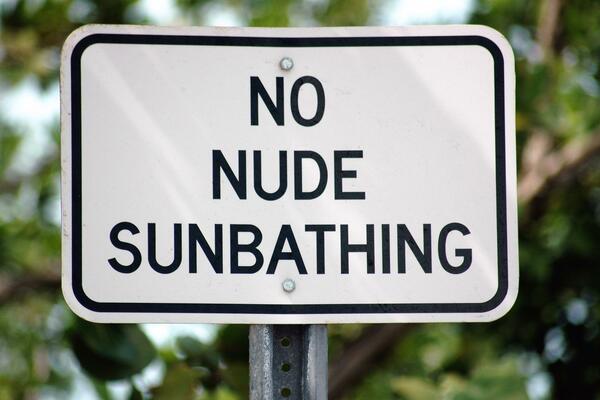California has particular regulations for age, place, and acts of lewd and lascivious conduct which state law holds to be illegal. Per the regulations set forth by California Penal Code Section 288(a), it is unlawful to commit a lewd or lascivious act with a minor under 14. The simple act of being accused of these crimes is powerful enough to uproot both one’s personal life and professional career. The effects of a conviction for these charges can be detrimental. It is essential for individuals facing lewd and vicious behavior charges to understand state regulations and subsequent policies.
What Constitutes Lewd and Lascivious Conduct in California?
The State of California defines lewd and vicious behavior as engaging in a sexual act with a minor under 14. For the action to be lewd and vicious, the activity must involve one or more of the following intentions:
- To appeal to the lust
- Arouse
- To fulfill lust
- Fulfillment of passionate motives
- The satisfaction of sexual desire
To reach a conviction in court, a prosecutor must prove the following elements present:
- The defendant has willingly engaged in the sexual act of touching a child or has touched a child.
- The defendant engaged in the act of touching a minor with the intention of arousal, sexual appeal, or sexual gratification.
- The accused carried out these actions on a minor child under 14.
California law does not require penetration to occur for an individual to be guilty and for a court to convict them of lewd and lascvious behavior. Though the individual must act out the sexual contact intentionally and willfully, it is not necessary for the child in question to be naked when the contact occurs. This charge is under Penal Code Section 288(a).
Examples of the kind of conduct that is deemed unlawful lewd and vicious behavior by the penal code are:
- Sexual Groping
- Any intentional sexual touch
- Intentionally coercing another individual to engage in sexual touch with the defendant.
- Indecent exposure
- Intentionally coercing individuals to engage in sexual acts with the defendant against their will.
What Are the Penalties for Lewd and Lascivious Conduct in California?
Like any legal case, the penalties an individual will face for committing an illegal act is dependent on the circumstances of their case. Circumstances can include defendant’s action(s) and the state in which they committed the crime. Section 288 of the California Penal Code outlines the penalties for lewd and lascivious conduct. However, to charge an offender with any of these penalties, the prosecutor must prove that the act(s) was genuinely lewd and lascivious. Proving this requires the prosecutor to establish the following:
- The situation during which the touching took place
- Whether or not the offender and victim shared a pre-existing relationship
- If so, the kind of relationship they shared.
- The specific action(s) of touching that took place and,
- Lastly, the prosecutor must prove why there cannot be a truthful declaration of innocence for the action(s) taken based on the situation’s circumstances.
California Penal Code Section 288:
The penalties for a court conviction for lewd and vicious behavior in California are outlined by California Penal Code Section 288. Section 288 of the California Penal Code contains parts A, B, and C. Each subsection of this penal code explicitly outlines the penalties an offender will face depending on the circumstances of the violation.
The Penal Subsections are as follows:
- Section 288(a): Individuals whom the court charges for violating this subsection will face a prison sentence of up to eight years and a possible $10,000 fine. To be convicted of violating this section of the penal code, the offender must have engaged in lewd and vicious behavior with a minor child under 14 with intent to arouse.
- Section 288(b): Individuals the court convicts for violating this subsection will face a prison sentence of up to ten years with no opportunity for probation. Under this subsection, individuals can also face fines upwards of $10,000 for their actions. To be convicted of violating this subsection of the penal code, the offender must have engaged in lewd and vicious behavior with a minor child under the age of 14 using force. If the illegal activities involve bodily harm to the minor, the offender may face a life sentence in prison.
- Section 288(c): Individuals who the court charged with a violation of this Section 288(c) will face a prison sentence of one to three years. The court determines an offender’s sentence length by whether the individual committed a misdemeanor or a felony. If they face a misdemeanor charge, the maximum penalty is 365 days. If it is a felony, the maximum prison sentence they face is three years. Both crimes are additionally subject to a monetary fine of up to $10,000.
Regardless of the subsection, an offender has violated the court will require that they register with the California State Sex Offender Registry. Legally, any individual convicted of violating any part of Section 288 must register as a sex offender.
California Penal Code Section 290:
Because of California Penal Code 290, people who violate Section 288 must register as sex offenders. Depending on the violation that occurred, individuals must register with the sex offender registry for different amounts of time. Most commonly, individuals must register for ten years, 20 years, or life. Under California Law, the requirement of registering with the California State Sex Offender Registry is not a crime unless the individual fails to comply with this requirement. If a sentenced individual fails to comply, they may face an additional felony. The penalty for the additional felony charge is most commonly another three-year prison sentence.
Contact Pride Legal
If you or a loved one have questions regarding lewd and lascivious conduct in California, we invite you to contact us at Pride Legal for legal counseling or any further questions. To protect your rights, hire someone who understands them.

